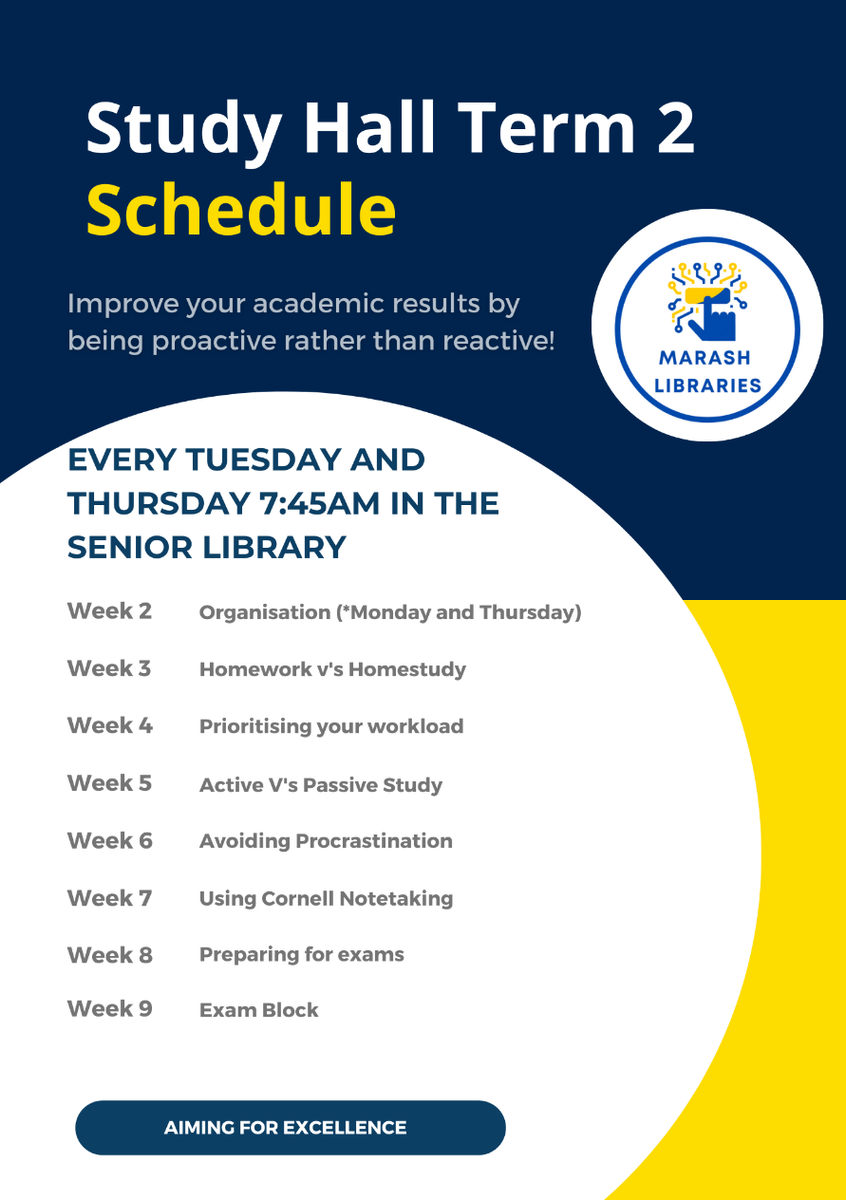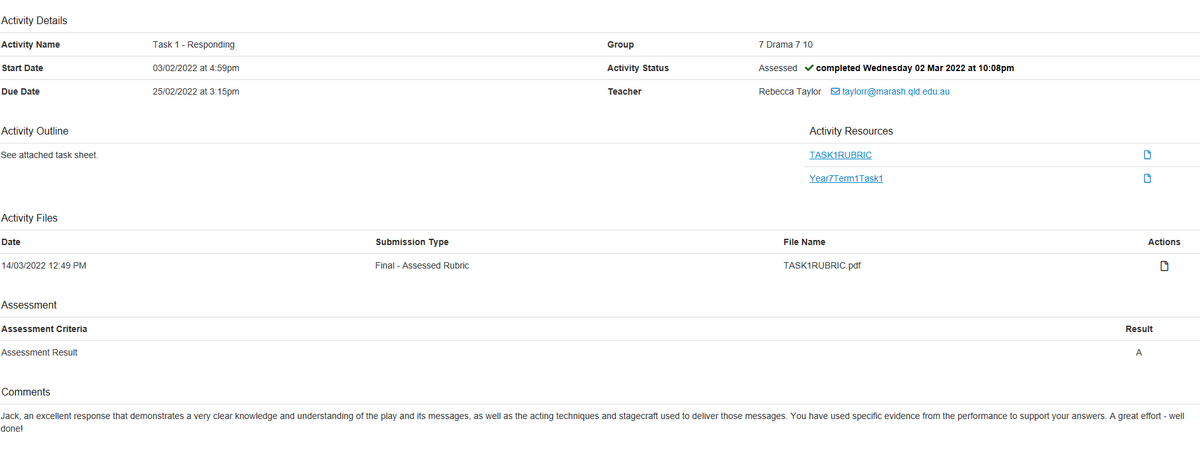Learning and Teaching News
Ms Jennifer Smeed and Mrs Roxanne Rosenberg

Learning and Teaching News
Ms Jennifer Smeed and Mrs Roxanne Rosenberg
Welcome back to Term 2, and a warm welcome to those families who join our Marist family this term. Term 2 promises to be another busy and exciting term in the learning and teaching area.
As always, we will provide outlines of upcoming events and additional information in the newsletter each week so please ensure you check this space weekly.
We hope that your son/s have a wonderful term!
Mood Food is a presentation that looks at the impact food choices can have on our son’s mental health and achievement at school. Industry experts in health, nutrition and education will be speaking to us about:
This will be held in Draney Theatre on Wednesday 19 April at 6:00pm (presentation and questions will go for an hour). The session will not be recorded. Please grab your tickets here! Don’t miss out. https://events.humanitix.com/mood-foods
The Year 10 subject change window is currently open and will run until Wednesday 26th April (Week 2). If your son is looking to change one of his elective subjects for study in Term Two and beyond, please ensure he visits the Studies Office to see Mr Knight or Ms Smeed for a conversation and to collect relevant paperwork. Subject change requests after this date will not be made for Term 2.
Fiction books give us an opportunity for personal exploration and growth, by trying out different possibilities for ourselves. Using brain imaging technology, neuroscientists can explore what happens in our brains as we read books and connect with fictional characters. One research group used functional magnetic resonance imaging (fMRI) to look at what happened in readers' brains when they read a chapter from Harry Potter and the Philosopher's Stone. fMRI shows which areas of the brain are active during an activity by measuring blood flow changes to those brain areas. The researchers found that reading about physical movements of characters was related to activity in an area of the brain called the angular gyrus (Figure 1, blue). This brain area is also active when we see or imagine physical movement in real life. Also, reading the dialogue in stories was related to activity in the temporal cortex and the inferior frontal cortex (Figure 1, yellow and orange)—areas that are responsible for producing and understanding language. They also found different activity in the temporal cortex depending on which character was being read about. This research helps us to understand what is going on in our brains when we are absorbed in a good book, and how this might be similar to what happens in real life.


Connecting with characters in books can help us understand, explore, and experiment with our identities and improve our perspective-taking skills. As well as feeling like we are connected with fictional characters, studies using fMRI have shown that reading about them is related to activity in specific parts of our brains. IAT studies have also shown that reading about different characters can help us really identify with them, perhaps even taking on some of their characteristics for a while.
Adapted from: Webber, C., Wilkinson, K., Duncan, L.G., & McGeown, S. (2022). Connecting with fictional characters: The power of books. Front. Young Minds, 10. doi: 10:65892
Tutoring at the College is available for all students, and outlined below are faculties where your son can receive assistance.
Subject | When | Time | Where |
Maths | Every morning | 7:30am-8.30am | 402 |
Science | Tuesday/Thursday (General Science) Wed-Friday (Chemistry) | 7:45am-8.30am | Science Foyer |
Art | Tuesday | 3:30pm-4:30pm | Art rooms |
English | Every morning | 7:45am-8.30am | CLE |
Economics | Year 11 Tuesday morning Year 12 Friday mornings | 7:40am-8.30am | 206 |
*Other faculties by appointment with classroom teacher.
Additionally, the CLE run touch-base tutoring for specific students in the College. For more information, contact CLE@marash.qld.edu.au
If you would like an external tutor, please find a list of Old Boy tutors here.
Our senior library is open from 7:30am every morning until 5:00pm Monday-Thursday. It closes at 3:30pm on Fridays.
Your son is encouraged to head to the library before and/or after school to complete his homework or study, free from the distractions at home.


The Night Study Sessions are weekly study times available to Year 12 students who wish to work in collaboration with their peers for assessment, complete revision, revisit classwork or work on external exam preparation.
When: Every Wednesday during term time from 5:00pm-8:00pm
Where: Senior Library
Who: 2023 Year 12s only
Requirements:
A librarian will be on duty from 5:00-8:00pm to assist if required; however, these are not tutoring sessions. Students are encouraged to work collaboratively.
Thank you to Mrs Mary Stirling and the wonderful librarians for staffing these valuable study opportunities for our 2023 Year 12 students.
ChatGPT
As technology has evolved so have the opportunities to outsource many tasks in our daily lives. Emails have replaced letters and postcards, mobile phones are replaced credit cards and smart watches have told use when to exercise, stand and take time to breathe. In November 2022, ChatGPT was launched and the next step in the use of technology in our lives was taken.
ChatGPT is a large language model developed by OpenAI, designed to generate human-like text in response to natural language inputs. It is based on the Transformer architecture, which allows it to understand the context and meaning of the input text and generate coherent and relevant responses.
ChatGPT has been trained on a vast amount of text data from the internet, including books, articles, and websites, enabling it to understand and generate text on a wide range of topics. It can engage in conversations, answer questions, provide information, and even generate creative writing, among other tasks.


(OpenAI, 2023)
ChatGPT and Artificial Intelligence (AI) at Marist College Ashgrove
Chat GPT and other AI tools offer both benefits and possible risks for students and their learning. As AI tools continue to evolve, the College will review advancements and communicate necessary changes to the community. Parents, teachers and students will work together to ensure that all resources, including AI, are used to support student learning, not take away from it.
At Marist College Ashgrove we will:
To date, the QCAA has formed an Artificial Intelligence Working Group which will investigate AI technologies and consider their impact on assessment practices, assessment design and academic integrity. The QCAA continues to support the below strategies that teachers may use to establish authorships of student responses:
(QCAA, 2023)
What can you do as a parent/carer?
The College works in partnership with both students and parents/carers; we each have an important role to play to best support each boy. To support their learning, we ask that you:
At the end of last term, Year 5 -10 student results and task-specific feedback for all subjects were released to Student Café. These results and feedback can also be located on Parent Lounge. Please follow the steps below which highlight how to access your son’s results and feedback.
1 - Open parent portal and click on “Parent Lounge”
2 - On the left-hand tab select “Curricular Activities Due” and select “view all activities” on the top right-hand side of page.


This will take you to a screen that lists of your son/s assessment to complete or has been completed.
3 - Click on a subject to view feedback.


4 - Once you click on the subject you will be able to find the following information:
a. Task sheet for assessment – this will outline what your son needs to do to complete the task successfully
b. Draft due dates and due dates
c. Criteria sheet
d. Feedback
e. Result

